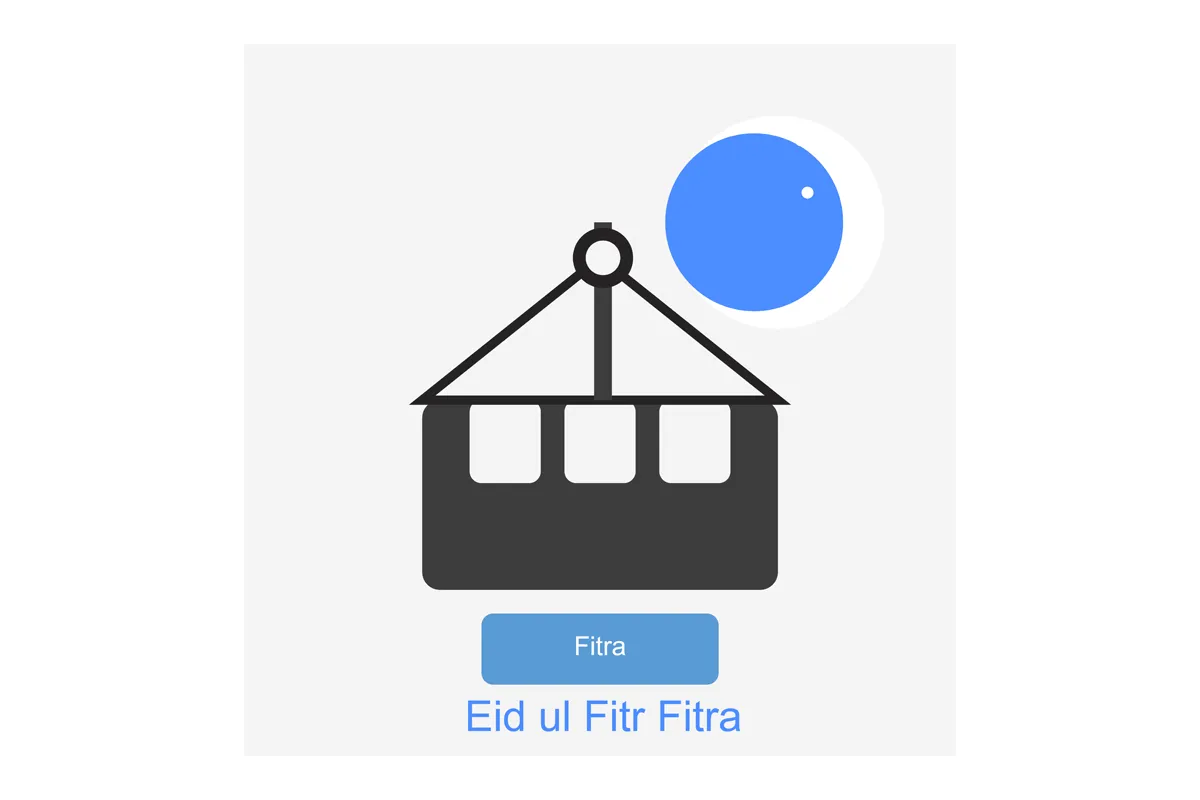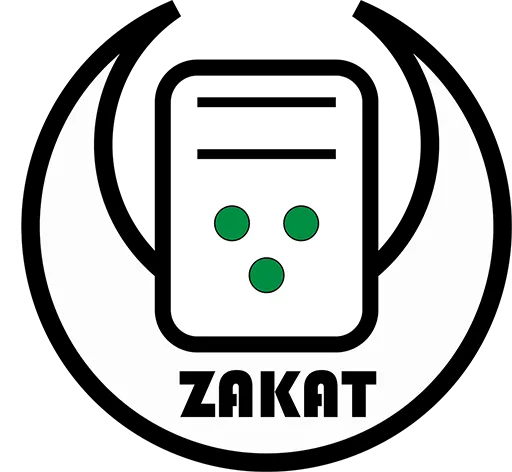
When Eid arrives, there’s a beautiful tradition that every Muslim must fulfill: eidulfitrkafitra. It is not just a ritual; it’s a way of giving back and purifying ourselves. In this detailed guide, you’ll learn everything about fitrana in Islam Urdu, its meaning, rates, and much more. Let’s dive in! 🌍 Need Zakat Calculator?
What Is Fitrana?
Fitrana mean a mandatory charity given before Eid-ul-Fitr prayers. But why is it so important?
In simple terms, it’s about ensuring that everyone—regardless of wealth—can celebrate Eid. Islam teaches equality, and zakat al fitr is a practical application of this principle.
Key points to understand:
- It’s obligatory for every Muslim.
- Paid for oneself and dependents.
- Purifies fasting and helps the needy.
Historical Background of Fitrana
The practice of sadqa e fitr dates back to the Prophet Muhammad (ﷺ). He emphasized that it should be given before the Eid prayers to ensure those in need can participate in the celebrations.
“The Messenger of Allah (ﷺ) made sadaqatulfitr obligatory to purify fasting and to feed the poor.” – Hadith reference
Historically, the amount of fitrana was measured in staple foods, like dates, barley, raisins, or wheat. These items were chosen because they were commonly consumed and accessible to all. The intention was to create a sense of equality during the joyous occasion of Eid.
During the time of the Prophet Muhammad (ﷺ), food items like dates and barley held significant value in the community. A family would prepare their sadqa e fitr by weighing the exact amount prescribed, ensuring fairness and consistency. The same tradition continues today, though many opt to pay in cash for convenience.
The Impact of Fitrana in Early Islamic Society
In early Islamic communities, sadqatulfitr played a vital role in fostering unity. By giving to the less fortunate, the societal gap between the rich and poor was bridged, at least temporarily. It also ensured that everyone could enjoy the spirit of Eid without feeling excluded. The wealthier members of society saw this as an opportunity to fulfill their duty toward Allah (ﷺ) and their fellow humans.
Moreover, this charity often acted as a lifeline for impoverished families. Receiving food or monetary aid allowed them to prepare for Eid, including buying clothes or preparing a modest feast. This practice highlighted Islam’s commitment to social justice and compassion.
Modern Interpretations and Adaptations
In today’s world, the calculation and payment of fitrana have adapted to modern economic systems. While the essence remains the same, the methods have evolved. Many Islamic charities and organizations provide online platforms where Muslims can calculate and pay their sadqafitr 2025 with ease. This digital approach ensures timely distribution to those in need.
Interestingly, scholars have also explored the significance of food versus cash donations. While food donations maintain the historical tradition, cash allows recipients to address their most pressing needs. For example, a family may prioritize buying medicine or paying rent over purchasing food.
Despite these modern changes, the core values of empathy, equality, and gratitude remain central to sadqa e fitr. Muslims worldwide embrace this practice as a means of spiritual purification and community support, making Eid a time of universal joy.
How to Calculate Fitrana?
Calculating fitrana rate is simpler than you think! It’s based on the staple food of your region, such as wheat, barley, or dates. Here’s a step-by-step guide:
- Determine the food’s weight (approx. 2.5 kg or 5.5 lbs).
- Check the market price of the food.
- Multiply the price by the required weight.
For example:
- Wheat: 2.5 kg × $2/kg = $5
- Barley: 2.5 kg × $3/kg = $7.50
This year’s sadqafitr 2024 rate might differ based on your region. Check local authorities for updated values.
Info Box: Quick Calculation Guide
| Food Type | Weight | Price/Kg | Fitrana |
| Wheat | 2.5 kg | $2 | $5 |
| Barley | 2.5 kg | $3 | $7.50 |
Don’t forget to confirm with your local Islamic organization! 🏛️
Who Should Pay Fitrana?
Obligatory for Everyone
Every Muslim must pay sadqa e fitr for themselves and dependents, including:
- Children
- Elderly parents
- Even unborn children (in some opinions)
Exceptions
Those who don’t have surplus food or money beyond their basic needs may be exempt.
Read more about the rulings here.
Benefits of SadaqaTulFitr
Why does Islam place so much emphasis on sadqafitr?
- Purification of Fasting: It compensates for any shortcomings in your Ramadan fasts.
- Social Welfare: Helps the less fortunate partake in Eid celebrations.
- Spiritual Growth: Strengthens your connection with Allah (ﷺ).
Giving zakat al fitr reflects your gratitude for completing Ramadan and fosters community bonds. 🌟
Common Mistakes in Paying Fitrana
Even though it seems straightforward, mistakes can happen. Avoid these common errors:
- Delaying Payment: Ensure it’s paid before Eid prayers.
- Incorrect Amount: Double-check the fitrana rate in your region.
- Neglecting Dependents: Remember to include dependents when calculating.
Pro Tip: Use online tools for accurate calculations.
Here is the zakat calculator for quick and accurate estimates.
How Fitrana Differs from Zakat?
While both are forms of charity, fitrana mean something unique:
| Aspect | Fitrana | Zakat |
| Obligatory for | Every Muslim | Eligible Muslims only |
| Timing | Before Eid-ul-Fitr | Anytime |
| Amount | Fixed (per person) | 2.5% of savings |
For detailed differences, check out this guide. 🖋️
Can Fitrana Be Paid in Cash?
Traditionally, sadqatulfitr was given in food, but many scholars allow cash payments. Why?
- Convenience: Easier for donors and recipients.
- Practicality: Recipients can buy what they need.
Check your local Islamic rulings for guidance on this.
The Significance of SadqaFitr 2024
This year’s sadqafitr 2025 holds even greater importance as inflation impacts many communities. Paying on time ensures everyone can celebrate Eid with dignity. 🎉
Social Impact
One of the greatest values of sadqa e fitr lies in its ability to address immediate needs within the community. For families struggling to make ends meet, receiving fitrana ensures they can purchase food or other essentials during the festive season. This assistance becomes even more critical in years marked by economic challenges.
Strengthening Community Bonds
When you give sadqatulfitr, you’re actively contributing to a cycle of kindness. The recipients not only feel included but also encouraged to pay it forward when they are in a better position. It’s a chain reaction of goodwill that brings communities closer.
Spiritual Rewards
For the giver, the act of paying sadqafitr carries immense spiritual rewards. It serves as an act of gratitude for the blessings of Ramadan and Eid. By participating in this charitable duty, you align yourself with the teachings of the Prophet Muhammad (ﷺ), fostering a sense of fulfillment and peace.
Addressing Modern Challenges
In today’s urbanized societies, direct food distribution may not always be feasible. That’s where monetary contributions step in. Modern platforms and apps simplify the process, allowing Muslims worldwide to fulfill their obligations seamlessly. This adaptability ensures that the tradition remains relevant, regardless of time and place.
A Collective Celebration
The ultimate goal of sadaqa e fitr is to make Eid a universal celebration. By ensuring that no one is left behind, this act of charity highlights the essence of Islamic teachings—compassion, equality, and inclusivity. When everyone can celebrate together, the true spirit of Eid shines through.
Visual Examples for Better Understanding
Fitrana Process at a Glance
- Step 1: Check local fitrana rate.
- Step 2: Calculate for each dependent.
- Step 3: Pay it before Eid prayers.
Checklist for Fitrana Payment
🔄 Confirm local rates 🔄 Include all dependents 🔄 Use an online calculator if needed 🔄 Pay on time
Conclusion
EidulFitrkafitra is more than just a financial obligation; it’s a means to uphold the values of compassion, equality, and gratitude that Islam cherishes. By understanding its history, significance, and proper method of payment, you can ensure this act of charity has its intended impact. Whether through food or cash, your contribution can light up someone’s Eid, bringing joy and hope to those in need. Let’s fulfill this beautiful duty wholeheartedly and make Eid a celebration for all. 🎈
FAQ About EidUlFitrKaFitra
Q: What is the deadline for paying Fitrana?
A: It must be paid before the Eid prayers. Ideally, give it a few days earlier to avoid last-minute rush.
Q: Who can receive Fitrana?
A: The same categories eligible for zakat al fitr, such as the poor and needy.
Q: What happens if I forget to pay?
A: You’ll still owe it, but delaying diminishes its spiritual rewards.
